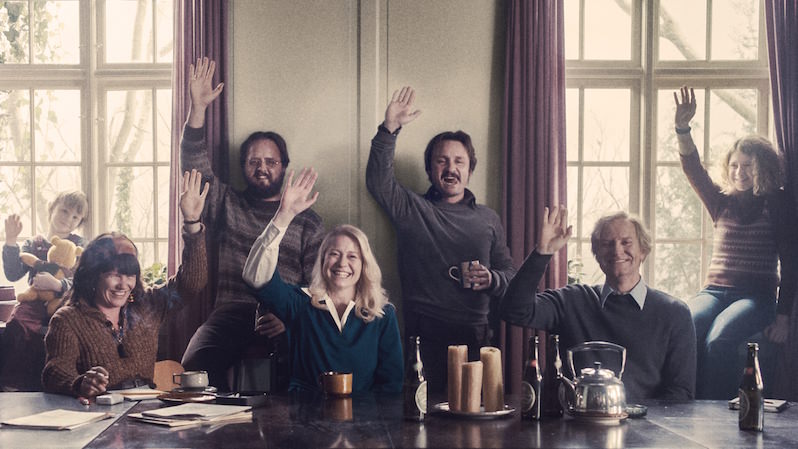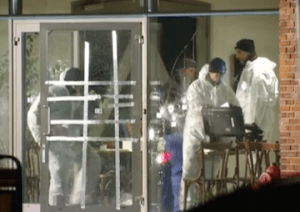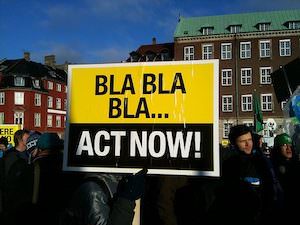‘The Commune’: Not Quite Here Nor There
Good performances can’t rescue the half-baked screenplay in Danish filmmaker Thomas Vinterberg’s re-creation of the freewheeling ’70s. A scene from "The Commune." (Magnolia Pictures)
A scene from "The Commune." (Magnolia Pictures)
A scene from “The Commune.” (Magnolia Pictures)
Danish filmmaker Thomas Vinterberg enjoys dissecting family ties through a dark and often satiric lens. This focus began with his earliest hit, “The Celebration,” which was a breakthrough for the director in 1998 and spotlighted actor Ulrich Thomsen. In the film, Thomsen played a man who disrupts his father’s 60th birthday party with accusations of child molestation.
Nearly 20 years later, Vinterberg and Thomsen reunite for “The Commune,” in which the actor plays Erik, an egocentric architect in 1975 Copenhagen. While the new movie doesn’t rise to the level of “The Celebration”—nor Vinterberg’s Oscar-nominated character study, “The Hunt”—“The Commune” is grounded in gritty acting at the core of an otherwise drawn-out melodrama.
After inheriting his father’s oversized house in a tony part of town, Erik is convinced by his wife, Anna (Trine Dyrholm), a successful news anchor, and their 14-year-old daughter, Freja (Martha Sofie Wallstrom Hansen), to rent space to their coolest friends and colleagues. Soon their house fills with Ole (Lars Ranthe), a burnt-out leftist; the free-loving Mona (Julie Agnete Vang); and a couple, Ditte (Anne Gry Henningsen) and Steffen (Magnus Millang), and their 6-year-old son, who makes it a point to remind everyone he has a heart defect. Joining the party late is Allon (Fares Fares), a lachrymose bearded man from an unspecified country.
It seems Vinterberg might be setting the stage for some penetrating observations on the lofty ideals of a more liberal era confronting the harsh realities of human failings. But this spirited ensemble remains a shapeless mass. Screenwriter Tobias Lindholm, with whom Vinterberg partnered so successfully on “The Hunt” and “Submarino,” merely sketches in his supporting characters and sometimes saddles his principles with unconvincing motives. Although there are music-backed montages of drinking, smoking and nude swimming, there are no discussions on the issues of the time: dissent, feminism and the anti-war movement.
If the ’70s are evoked at all, it is in the subtle work of production designer Niels Sejer and costume designer Ellen Lens, which conjures the period, minus the usual pastiche. Cinematographer Jesper Toffner’s desaturated digital palette suggests a vague nostalgia, but Erik clashes with his surroundings, as if drawn from a later era. Self-absorbed past the point of solipsist and straight on to sociopath, he is a character who seems one-dimensional on the page, yet Thomsen imbues him with enough nuance to save him from caricature.
When Erik ridicules a student in front of the class, another student, Emma (Helene Reingaard Neumann), apparently finds it sexy and pays a friendly visit to his office. A few scenes later, he confesses his indiscretion to Anna. The scene is likely one of the reasons Dyrholm won the Silver Bear award for best actress at the 2016 Berlin Film Festival. Her expression shifts to neutral, like a clock that has suddenly stopped, masking an emotional typhoon. In the film’s climax, wordless close-ups show her going to pieces as a stagehand counts down the seconds before her news broadcast goes live.
Spurned by Erik, Anna’s solution is to invite Emma to come live in the house with the other members of the commune. As hard as it is to imagine either woman falling for Erik, it’s even harder to imagine Emma accepting the offer, but she does. The situation worsens from there (no surprise), but instead of embracing the absurdity of the circumstances, the buoyancy of the first half gives way to pathos. Vinterberg and his cast work their magic on Lindholm’s half-baked screenplay, delivering a movie that is less maudlin than network television, though not by much.
Your support matters…Independent journalism is under threat and overshadowed by heavily funded mainstream media.
You can help level the playing field. Become a member.
Your tax-deductible contribution keeps us digging beneath the headlines to give you thought-provoking, investigative reporting and analysis that unearths what's really happening- without compromise.
Give today to support our courageous, independent journalists.





You need to be a supporter to comment.
There are currently no responses to this article.
Be the first to respond.